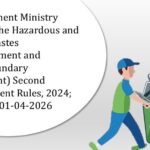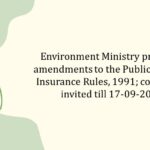The Health Ministry reviews the preparedness on Seasonal Influenza (H1N1). Seasonal influenza is a respiratory viral infection with seasonal occurrences every year. In 2019 (till date 03.02.2019), total 6701 cases and 226 deaths have been reported in country. Majority of cases have been reported from 11 states (and majority of deaths have been reported from Rajasthan, Gujarat and Punjab. Deaths have been in seen more in persons having co morbidities like diabetes, hypertension etc.
Integrated Disease Surveillance Programme (IDSP) and its State units have enhanced the surveillance for Influenza like Illness (ILI) and Severe Acute Respiratory Infections (SARI).
States also have their identified State Government and Private laboratories for testing clinical samples of seasonal influenza A (H1N1). In addition, NCDC is providing diagnostic kits and Viral Transport Medium kits to States as per identified need to be used in laboratories/ hospitals identified by the State Governments.
Guidance for the States/ UTs on Seasonal Influenza Vaccination :-
- Persons recommended for vaccination:-
- Health Care workers, working in hospital / institutional settings (doctors, nurses, paramedics) with likelihood of exposure to Influenza virus should be vaccinated. This includes those:
- All medical and paramedical personnel working in casualty/ emergency department of identified hospitals treating Influenza cases.
- All medical and paramedical personnel working in ICU and Isolation Wards managing influenza patients.
- All personnel identified to work in screening centres that would be set up for categorization of patients during Seasonal Influenza outbreak.
- Treating/managing the High Risk Group.
- Laboratory personnel working in virological laboratories testing suspected Influenza samples.
- Rapid Response Team members identified to investigate outbreaks of Influenza.
- Drivers and staff of vehicles/ambulances involved in transfer of Influenza patients.
2. Vaccine is desirable for
- elderly individuals (≥ 65 years of age)
- children between 6 months to 8 years of age.
3. Implementation
The State Governments/ Union Territory Administration, depending upon the public health burden of Influenza, would evolve a plan for vaccinating the health care workers/ persons at higher risk, on yearly basis. States/UTs may take appropriate
steps for undertaking immunization of healthcare workers based on usual timing of disease outbreaks in their State/region. The concerned hospitals would also have an action plan to vaccinate their health care workers on yearly basis.
4. Limitations of the Influenza Vaccination
Influenza vaccination is most effective when circulating viruses are well-matched with vaccine viruses. Even with appropriate matching, efficacy of vaccine may be about 70% to 80%. In case the locally circulating virus is different from vaccine virus recommended by WHO, it may be partially effective or not be effective at all. The available vaccine takes about 2-3 weeks for development of immunity. Hence for the health care workers working in an environment with likelihood of exposure to Influenza virus, vaccine should be administered at least one month prior to the commencement of the season, till such time use of chemoprophylaxis may be considered.
Source: PIB




